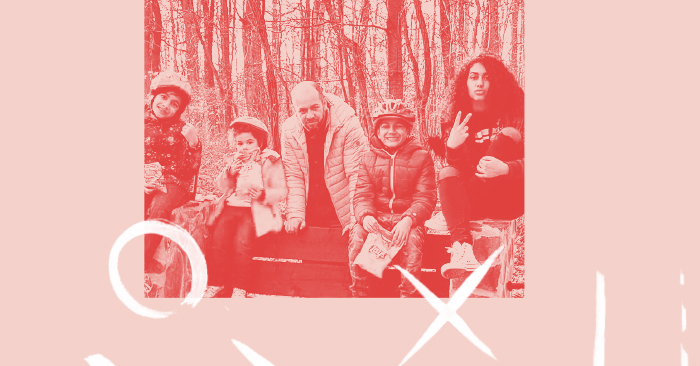Questions of Prejudice in Hungary

I am a sociologist and a Roma woman. I work for the Kecskemet Reformed Church Roma Mission and I primarily deal with social phenomena concerning Roma people. I think it is important to exchange prejudice for having personal experience and relationship with one another. I often participate in discussions where I can hear questions similar to the following ones.
Why do Roma start having children so early? Why do they have so many children?
To explore the reasons why Roma girls start having children so early, we should look further than the explanation regarding the lack of education. As we observe the everyday life of Roma families, we find that Roma children do not receive careful and close attention at every stage of development. The parents’ priorities are that their children will have their tummies filled and that they will not be cold or become ill. When girls’ sexual maturing begins, this may be the first time in their lives that they receive special attention. This special attention from the opposite sex is such a nice feeling that they soon have a relationship—but as they are not prepared for the consequences, they often become pregnant. The other side to this phenomenon is that education has no real value in their eyes—conversely, giving birth to children and becoming a mother offers them a lot of value in their communities.

Long ago, more children were born in non-Roma families than today. But as time passed by, education and careers became more important for women and their salaries became an important income for their families. Consequently, the birth of their first child was postponed until they became older. The later a woman gives birth to the first child, the shorter the rest of her fertility period, and fewer children will be born. There is no real sign of this phenomenon in Roma families since the value of education has had a minimal effect on this group.
The reproduction rate of Roma people is so high. Will they outnumber Hungarians soon? Will they attack Hungarians and conquer them?
This statement is the typical product of propaganda. Although we rarely hear it in this kind of sharp and extremist wording, we often hear it in “softer” versions. This statement is not only false, but it intentionally causes fear and therefore it strengthens tensions and the distance between Roma and non-Roma people.
This viewpoint shows us the default presumption: some people must rule over others. This is opposed to our Christian worldview and our understanding of humans.
Roma only have so many children in order to get child benefits and other social benefits given according to the number of children.
It is quite obvious from the demographic data that Roma families had just as many children before the introduction of child benefits. Of course they know about it and count on social benefits, but I think it is similar in non-Roma families. The difference is in the significance of the social benefits as income, since great numbers of Roma families are disadvantaged and this form of support is very important for them.
Why are Roma so loud and aggressive when they are applying for services and social benefits?
Roma people have to face prejudice and offence many times; many people are afraid of them or reject them without any sign of acceptance, without having any personal contact or experience with them. At the same time they need to access some services and they need to get the attention of people to address their issues. The threat of physical insult, the aggressive communication or the loud communication itself helps them to achieve their goals. If they get affirmation for this—it did not work, when trying gently, but it worked when they were loud—then most likely they will try a similar approach next time. If these practices did not work they would not use them. These are easy-to-access and approved tools to achieve different goals.
Why should we be afraid of Roma people?
Nobody should be afraid of the Roma. Fear is a self-defense mechanism. Whatever behavior we think is normal is part of our culture. To be afraid of any other strange and new behavior is a natural part of our lives. The only cure for it is personal experience and getting to know new things and people.
Why do Roma say they are starving when we can see many overweight children?
They are not fat because they eat a lot every day, but because they eat unhealthy food.
Eating is very important for Roma families and it is a way of expressing their love. Yet, we can observe short-term thinking as a tendency among them. Their priority is to fulfill their needs today. They enjoy eating and cooking as well. They usually eat high calorie food: pasta, potatoes, meat.
Lack of information and an attempt to satisfy desires generated by television advertisements–since television is the only source of information for many Roma families–they buy unhealthy sweets and other food full of preservatives for their children. Overspending at the beginning of the month and eating cheap food for the rest of the month is typical for them, because of longing for better food in times of deprivation and because of this short-term thinking. Cheap foods are also known to be poor in vitamins but high in calories.
Why don't they want to be like us?
Everyone would like to live better, but the culture of everyone is equally precious. We should not strive to become similar, but to accept each other and to delight in the values of each other.









comments